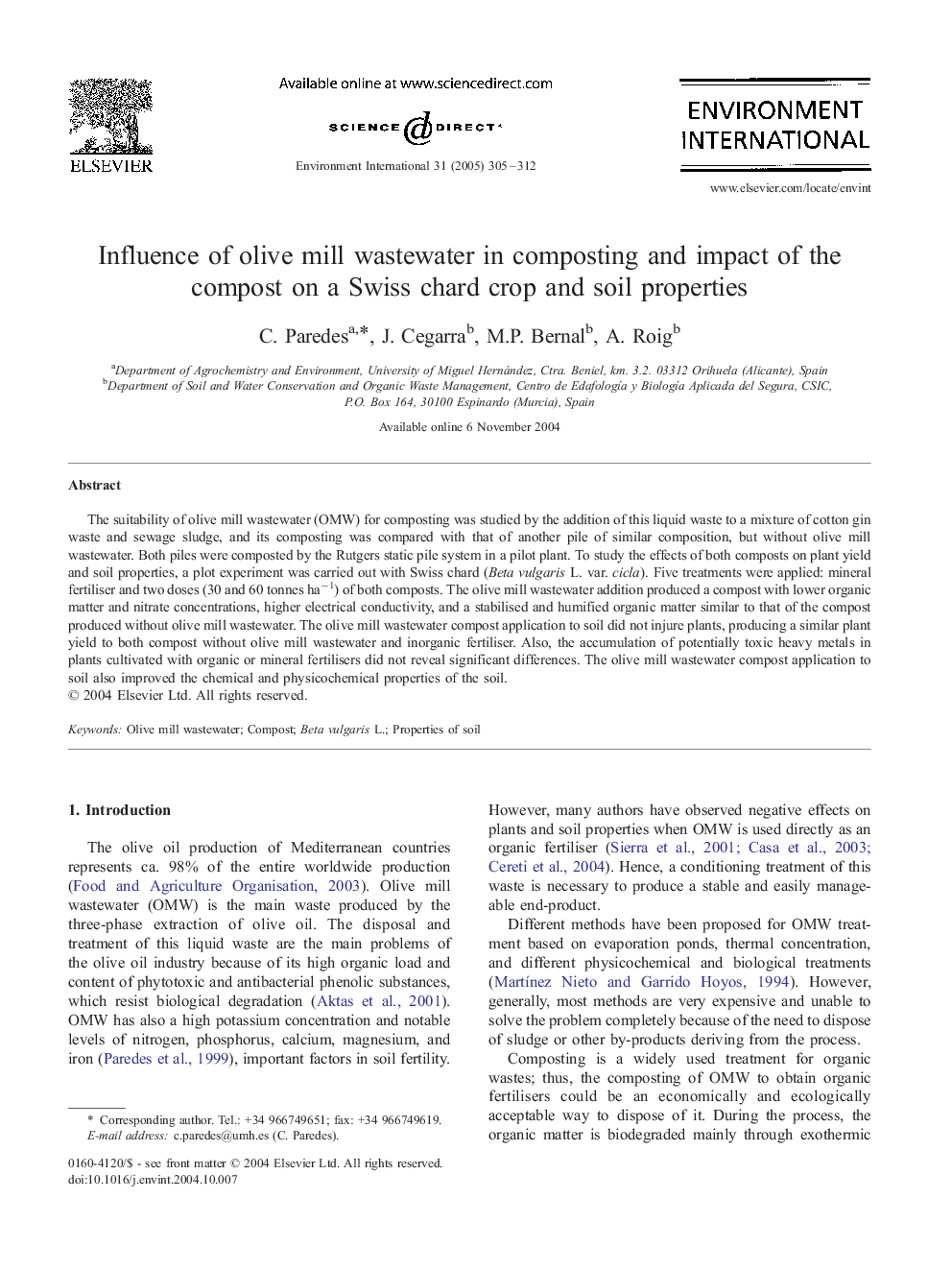| Article ID | Journal | Published Year | Pages | File Type |
|---|---|---|---|---|
| 9455554 | Environment International | 2005 | 8 Pages |
Abstract
The suitability of olive mill wastewater (OMW) for composting was studied by the addition of this liquid waste to a mixture of cotton gin waste and sewage sludge, and its composting was compared with that of another pile of similar composition, but without olive mill wastewater. Both piles were composted by the Rutgers static pile system in a pilot plant. To study the effects of both composts on plant yield and soil properties, a plot experiment was carried out with Swiss chard (Beta vulgaris L. var. cicla). Five treatments were applied: mineral fertiliser and two doses (30 and 60 tonnes haâ1) of both composts. The olive mill wastewater addition produced a compost with lower organic matter and nitrate concentrations, higher electrical conductivity, and a stabilised and humified organic matter similar to that of the compost produced without olive mill wastewater. The olive mill wastewater compost application to soil did not injure plants, producing a similar plant yield to both compost without olive mill wastewater and inorganic fertiliser. Also, the accumulation of potentially toxic heavy metals in plants cultivated with organic or mineral fertilisers did not reveal significant differences. The olive mill wastewater compost application to soil also improved the chemical and physicochemical properties of the soil.
Related Topics
Life Sciences
Environmental Science
Environmental Chemistry
Authors
C. Paredes, J. Cegarra, M.P. Bernal, A. Roig,
